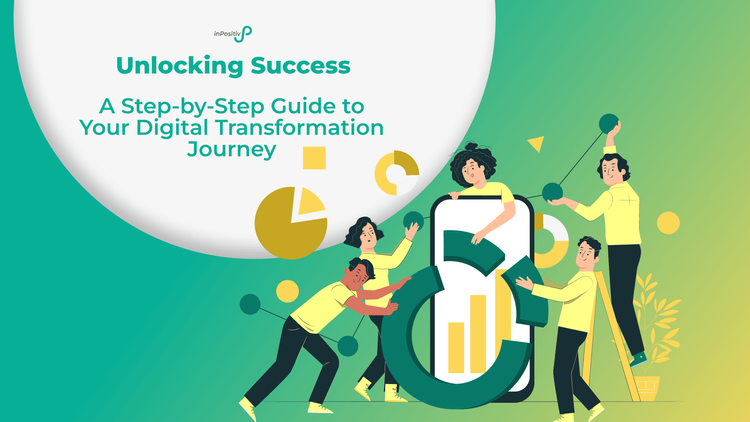Professional networking establishes and nurtures meaningful connections with people in your industry or related fields. At its core, it involves building relationships with individuals who can offer valuable insights, guidance, or opportunities to advance your career or business goals. Networking isn’t just about exchanging business cards or sending out LinkedIn requests; it's about fostering long-term connections that can help both you and your network grow professionally.
Effective networking helps you gather knowledge, share experience, and unlock opportunities that you might not have access to otherwise. Whether you're attending a networking event or engaging in an online community like LinkedIn, it’s essential to approach it with the mindset of building genuine relationships. We understand how challenging this can feel, especially if you’re new to social networking services, but by mastering social skills and understanding your goal, you'll find that networking becomes a powerful tool for career growth.
Common Networking Mistakes and How to Avoid Them
In the world of professional networking, if you're not careful, certain habits can hinder your efforts to build lasting and meaningful relationships. By understanding and avoiding common networking mistakes, you’ll set yourself up for success in your professional network.
Mistake #1 – Being Too Pushy
One of the most frequent mistakes people make during networking events is being overly aggressive in trying to make connections. While it’s important to show interest in meeting new people, coming across as pushy can leave a negative impression. Instead of forcing the conversation, aim to listen and engage naturally. Remember, building relationships is a gradual process. It’s more effective to establish a rapport based on mutual respect than to overwhelm someone with requests.
Mistake #2 – Forgetting to Follow Up
Another mistake that can derail your networking efforts is failing to follow up after the initial meeting. Sending a simple email or LinkedIn message to thank someone for their time and express interest in staying connected goes a long way. It shows that you value the network you are building and demonstrates professionalism. Without this step, the relationship may fizzle out, leaving your connections without the social skills and personal touch necessary to flourish.
Mistake #3 – Not Being Genuine
Being authentic is key to creating meaningful professional relationships. People can quickly sense when you're not being sincere, and this can be a major turnoff. Focus on building relationships that feel genuine, rather than just transactional. It’s important to be yourself and show a real interest in others. Your experience and knowledge will speak for itself when you remain authentic in your interactions.
Mistake #4 – Focusing Only on What You Can Get
Networking is a two-way street. If your goal is solely to get something from the other person—whether it's information, a job opportunity, or a business deal—you'll quickly come across as self-serving. Instead, focus on how you can add value to the relationship. By sharing your own insights and offering assistance when possible, you build trust and create a stronger professional network.
Mistake #5 – Not Expanding Your Network
Finally, many professionals make the mistake of staying within their comfort zone and not actively working to expand their network. While it’s easier to rely on existing connections, meeting new people and entering different circles can open doors to fresh opportunities. Whether through a networking event, joining an online community, or participating in a mentorship program, continuously expanding your social network is essential for long-term success.
Avoiding these common mistakes can transform your networking efforts and help you create a relationship that supports your career growth.
Easy 10 Tips to Build a Strong Professional Network
Building a network is essential for anyone looking to succeed in their career. Whether you’re aiming to meet new colleagues, mentors, or potential business partners, networking is a skill that can open many doors. Here are 10 simple yet effective tips to strengthen your professional network and make lasting connections.
Tip #1 – Start Early
The earlier you begin networking, the better. Don’t wait until you’re actively looking for opportunities or partnerships. By building relationships early, you create a strong foundation that you can rely on when needed. Attend industry events, connect on platforms like LinkedIn, and initiate conversations with professionals in your field before you feel the need to. A proactive approach will give you a head start and help you establish valuable connections over time.
Tip #2 – Attend Events
Networking events, whether they are in-person or virtual, are prime opportunities to meet professionals and exchange information. Attending conferences, seminars, or even casual business meetups can broaden your reach. When attending, always come prepared with nfc enabled business cards and be ready to introduce yourself confidently. Events like these are a great way to break the ice and initiate conversations that could evolve into strong professional relationships.

Tip #3 – Practice Good Communication
Effective communication is key when building your network. This means being clear, concise, and respectful in your interactions. Eye contact, body language, and active listening all play a significant role in how you present yourself to others. Additionally, practising good email etiquette and knowing how to craft thoughtful, professional messages can help set you apart. Remember, your communication style says a lot about your professional persona, so always aim to leave a positive impression.
Tip #4 – Use Social Media
Social media platforms like LinkedIn are crucial tools for modern connection. You can expand your reach by connecting with professionals globally, staying updated on industry trends, and sharing your knowledge. LinkedIn, in particular, is an excellent platform for showcasing your expertise, engaging with online communities, and joining conversations within your industry. Be sure to regularly update your profile, contribute meaningful content, and engage with others' posts to maintain an active presence.
Tip #5 – Always Be Prepared
Being prepared is a fundamental aspect of successful networking. This includes not only having details ready but also having a clear idea of your networking goals. Before attending a networking event, research the attendees or speakers, and think about what you would like to gain from your interactions. Having a focused approach ensures you make the most of every opportunity.
Tip #6 – Offer Help
Networking is a two-way street, and one of the best ways to build relationships is by offering your help. Whether it’s sharing useful information, making introductions, or providing guidance, showing that you are willing to give back strengthens your professional relationships. Over time, people will be more inclined to reciprocate, which can lead to new opportunities and collaborations.
Tip #7 – Follow Up Regularly
It’s easy to lose touch after making a new connection, but the key lies in regular follow-ups. After meeting someone at a networking event or connecting online, send a brief message to express your gratitude for the conversation and suggest ways to stay in touch. Following up regularly with articles, event invites, or updates will keep the relationship alive and show that you’re genuinely interested in maintaining the connection.
Tip #8 – Be a Good Listener
One of the most underrated networking skills is being a good listener. Paying attention to what others are saying, asking thoughtful questions, and showing genuine interest in their experiences will leave a lasting impression. People appreciate when they feel heard and understood, and this builds trust, a crucial element. When networking, focus on listening more than talking.
Tip #9 – Build Long-Term Relationships
The goal of networking is not just to gain short-term benefits but to create long-lasting relationships. Building these relationships takes time and effort, but they are often the most rewarding. Stay connected with people even when you don’t need anything from them, and look for ways to offer support and encouragement. Over time, these long-term relationships will become your strongest allies in your career.
Tip #10 – Stay Positive and Open-Minded

Networking can sometimes feel challenging, but maintaining a positive and open-minded attitude will help you succeed. Approaching every conversation with curiosity and a willingness to learn will open more doors than you might expect. Whether you’re engaging with someone who shares your goals or someone from a completely different industry, an optimistic mindset will make you more approachable and leave a lasting impression.
Why Building a Strong Professional Network Matters
A solid network can be your gateway to learning new industry trends, finding mentors, or even securing partnerships. Through meaningful connections, you can tap into a wealth of experience and knowledge that might otherwise be inaccessible. Engaging with professionals from diverse backgrounds helps you to broaden your perspective and approach challenges with new insights. Furthermore, a strong network can be instrumental in career progression, as many opportunities come through personal recommendations rather than traditional job applications.
Additionally, networking can offer direct business benefits. Connecting with key individuals in your field can lead to valuable partnerships and collaborations. It helps you stay informed about market shifts, ensuring that your organisation stays ahead of the competition. By surrounding yourself with a network of experienced professionals, you increase your access to data-driven insights, expert opinions, and relevant conversations that drive decision-making.




